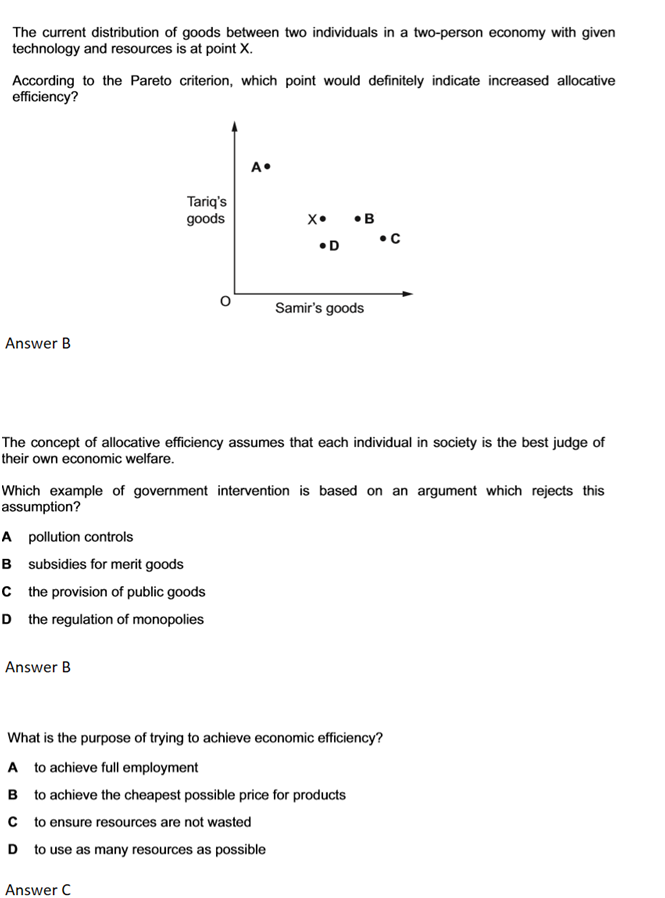It's time for you to choose your A level subjects and you are not 100% sure whether you should take economics.
Start by asking yourself the following questions:
If you don't have a clear answer to these questions, keep on reading!
What should you be prepared for?
1. The content
During the learning phase, you will learn about a variety of different theories and concepts.
A level Economics is divided between microeconomics and macroeconomics. Students study both microeconomics and macroeconomics in each year of A level Economics, with the depth and difficulty considerably greater in the second year.
Microeconomics
Microeconomics is the study of individuals, households and firms' behaviour in decision making and allocation of resources.
Examples of topics studied in A level microeconomics include
Scarcity, choice and opportunity cost
Maximum and minimum prices
Differing objectives of a firm
Labour market forces and government intervention
Macroeconomics
Macroeconomics is the branch of economics that studies the behaviour and performance of an economy as a whole.
Examples of topics studied in A level macroeconomics include
Inflation
Exchange rates
Government policy aims
Employment
Money supply
Economics is quite content-heavy. However, most of the content is fairly self-explanatory. Paying attention and a bit of common sense will get you far.
You won't need to learn every paragraph by heart. Simply understanding the logic behind a concept will be of great help.
Also, you will need to understand and reproduce different diagrams.
2. The exams
Economics exam questions will require you to use analytical and evaluation skills. You must able be to apply your economics knowledge to answer exam questions and essays.
You will come across three types of questions for your A level economics exams.
1. Data response questions.
This involves answering a series of questions based on a case study.
Extract:

2. Multiple choice questions.
Here you are asked to select a correct answer from the choices offered as a list.
Extract:

3. Essay questions.
Here are FREE examples of economics essay questions and answers.
How hard is A level economics?
Economics can be hard for some while easy for others. How you perceive the subject depends on several factors.
Economics is a hard subject only if you
lack interest in the content
get exam technique wrong
dislike writing long argumentative essays
don't feel comfortable interpreting graphs
However, if you enjoy the content and show some genuine interest in the subject, you will be fine. You will eventually learn the right exam techniques with practice.
Once you understand the dynamics of the graphs and concepts in Economics becomes considerably easier. Common sense can be enough to understand the topics and gain some marks.
How much maths is involved?
A level Economics requires a fair number of calculations and graphs so some maths skills are important.
The maths required is not more difficult than that taught at GCSE mathematics.
A level Economics is not complicated derivations and complex calculations. The challenging aspect is not about the maths calculation itself but the interpretation of these calculations and graphs.
The maths is scattered in all the sections of A level Economics, whether it is the multiple-choice section, the essay segment, or the data response question
Who should take economics?
Students who enjoy economics generally have these attributes:
Curiosity
Do you have curiosity about the world? Do you want to understand the 'big picture' and how political and business decisions will affect you?
Good writing skills.
The writing aspect of Economics is partly natural talent and partly practice. Can you learn a concept and explain it in your own words?
A desire to debate issues based on evidence.
Economics is the life-blood of political debate, and you need to keep up to date, following news online and in print to pick up on economic, political, business and social issues. It develops the ability to debate, both in class and on paper.
What's your verdict? Do you feel ready to take A level economics?
Take a look at our economics resources!
Comments